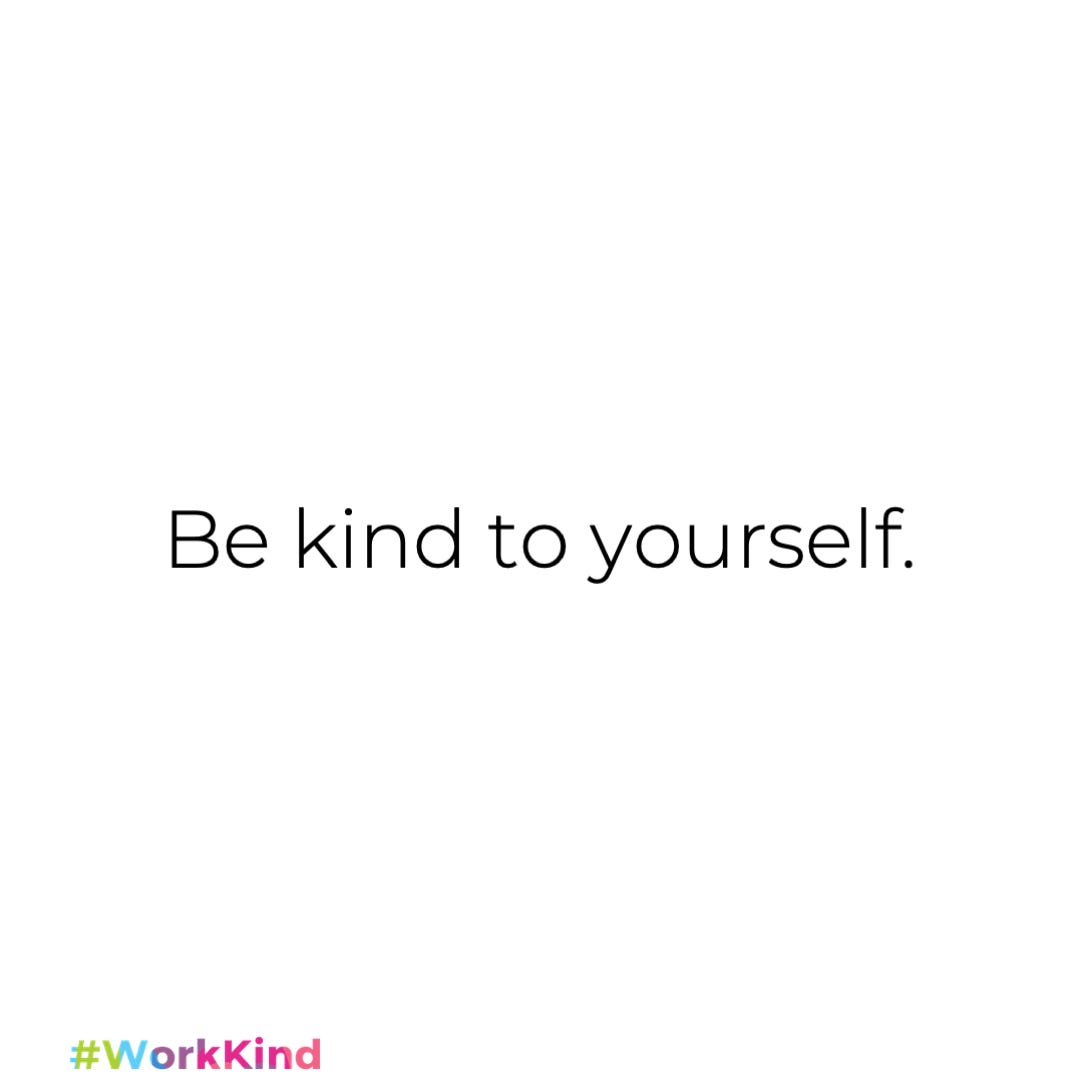If you read yesterday's piece on the grim reality of workplace dissatisfaction, you're probably looking for answers. You're not alone. Today, we're getting even more tactical with a practice that cuts through the noise: self-kindness. What is it? Self-kindness means meeting your failures and vulnerabilities with patience instead of judgement. It's an internal shift from critic to advocate. Let's get into how this can change your work life and life in general.
Positive Self-talk: Whenever you catch yourself engaging in negative self-talk, counter it with something positive about yourself or your abilities.
Breaks and Time-outs: Schedule short breaks to step away from your work and focus on your breathing, or perhaps do a quick mindfulness exercise.
Setting Achievable Goals: Break down your tasks into smaller, more manageable goals. Celebrate each accomplishment, no matter how small, to boost your self-esteem.
Prioritise Tasks: Understand that not everything that demands your attention is necessarily important. Learn to prioritise tasks based on their actual impact on your work.
Seek Help: Don't hesitate to ask for help or delegate tasks when overwhelmed. Recognise that needing assistance is not a sign of weakness but rather a smart strategy for more effective work.
Frequent Self-Check-ins: Periodically stop to assess your emotional state. If you find yourself anxious or stressed, perform a quick grounding exercise or even step outside for a breath of fresh air.
Social Support: Maintain a support network within the workplace. Confide in trusted colleagues, and allow them to confide in you. Mutual support makes the work environment more nurturing.
Physical Movement: Incorporate some light physical exercise like stretching or a quick walk. Physical activity releases endorphins, which naturally elevate your mood.
Stay Hydrated and Eat Well: Often, we forget basic physical needs when we're busy. Dehydration and hunger can both have a negative impact on your emotional state.
No Comparison: Avoid comparing yourself to your colleagues. Everyone has a unique set of skills and is facing different challenges.
Forgiveness: If you make an error, treat it as a learning experience rather than dwelling on it. Extend the same courtesy to colleagues when they make mistakes.
Visual Reminders: Place positive affirmations or even pictures of loved ones at your workspace to remind you to be kinder to yourself.
The 'Three Good Things' Exercise: At the end of each day, jot down three things that went well, no matter how minor. This shifts your focus from what went wrong to what went right.
So here we are, armed with actionable steps for making self-kindness a daily practice. Remember those statistics we talked about yesterday? The majority of people are stuck in jobs they don't like. Self-kindness is not just a concept; it's a tool that can radically shift your experience at work.
Let's make a commitment to be better for ourselves. The first step in transforming a miserable job into a tolerable, even enjoyable, one might just be this:





